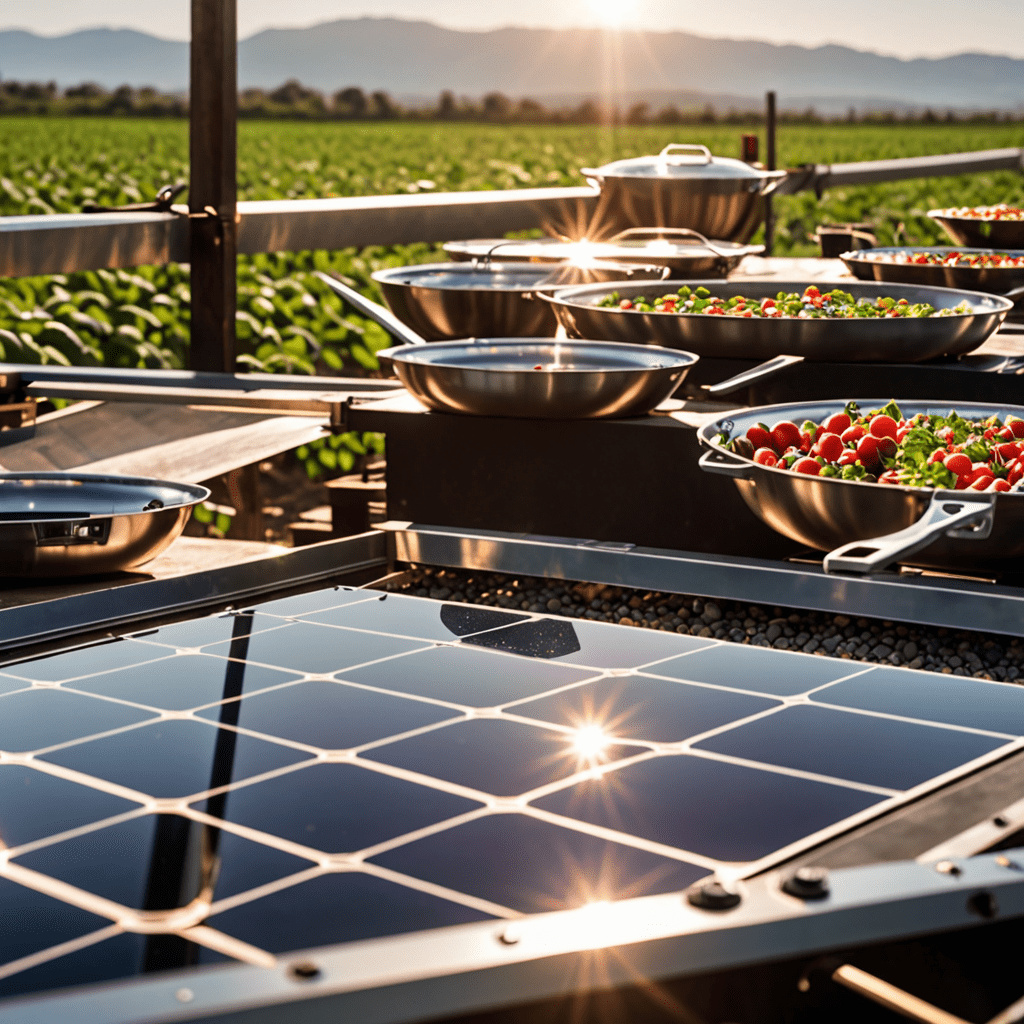
Solar Energy for Sustainable Cooking Solutions
With the increasing focus on sustainable living practices, the utilization of solar energy for cooking has emerged as an efficient and eco-friendly solution. Solar energy, harnessed from the sun’s rays, offers a renewable and clean alternative to traditional cooking methods that rely on fossil fuels.
The Advantages of Solar Cooking
Solar cooking presents numerous benefits, including reducing carbon emissions, minimizing deforestation for firewood, and decreasing reliance on non-renewable energy sources. Additionally, solar cookers are cost-effective in the long run as they utilize sunlight, which is freely available.
Types of Solar Cookers
There are various types of solar cookers available, such as box cookers, parabolic cookers, and panel cookers. Each type has unique features suited for different cooking needs, ranging from slow cooking to high-temperature cooking for grilling or frying.
How Solar Cooking Works
Solar cookers capture sunlight using reflective surfaces or panels, converting it into heat for cooking food. The energy from the sun is absorbed by the cooker, creating a greenhouse effect that traps heat and cooks the food enclosed within the cooker.
Benefits for Developing Countries
In many developing countries, access to clean cooking solutions is limited. Solar cookers offer a sustainable alternative that can improve indoor air quality, reduce health risks associated with indoor pollution from traditional cooking methods, and enhance food security in resource-constrained regions.
Challenges and Solutions
While solar cooking is a promising technology, challenges such as variable weather conditions and the need for adequate sunlight can impact its efficiency. Innovations like thermal storage systems and hybrid cookers that combine solar and electric power can enhance the reliability of solar cooking solutions.
Adoption and Awareness
Increasing awareness about the benefits of solar cooking and promoting its adoption through community initiatives and government support can pave the way for widespread implementation. Education on solar cooking practices and providing training on using solar cookers can empower individuals to embrace sustainable cooking solutions.
Conclusion
Solar energy for sustainable cooking solutions represents a viable pathway towards reducing carbon footprints, promoting energy independence, and fostering environmentally conscious lifestyles. By harnessing the power of the sun for cooking, individuals and communities can contribute to a greener future while enjoying the benefits of clean and renewable energy.
FAQ: Solar Energy for Sustainable Cooking Solutions
What is solar energy for cooking solutions?
Solar energy for cooking solutions refers to using solar-powered stoves or ovens to cook food. These devices harness sunlight and convert it into heat energy for cooking, providing a sustainable and environmentally friendly alternative to traditional cooking methods.
How do solar cooking solutions work?
Solar cooking solutions work by using solar panels or reflectors to capture sunlight. The sunlight is then converted into heat energy, which is used for cooking. Solar cookers come in various designs, such as box cookers, parabolic cookers, and panel cookers, each catering to different cooking needs.
What are the benefits of using solar energy for cooking?
Using solar energy for cooking offers several benefits, including reducing reliance on non-renewable energy sources, minimizing carbon emissions, and promoting sustainable living practices. It also helps in cutting down on cooking costs in the long run and provides a reliable cooking solution, especially in off-grid or remote areas.

